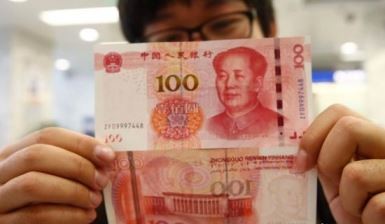The People's Bank of China (PBOC) has issued a statement calling on institutions and individuals to accept the new 100-yuan note for payment, following reports that many businesses refused it because their money-scanning machines can not identify its counterfeit features, the China Daily reported.
The 2015 edition of the bank note with advanced anti-counterfeiting technology was issued by the PBOC on Nov. 12. The new bank note will circulate alongside the previous editions, the PBOC said.
"The new version is the country's legal tender, and no institution or individual can refuse to accept it for payment. Institutions and individuals can complain about the refusal to the PBOC's local offices all over the country," a statement released on the bank's website read.
The PBOC said that before the new note was issued, all ATMs and scanners in financial institutions had been upgraded and passed the tests.
"It will take a longer period to upgrade all the machines at retail stores and other businesses, and the PBOC will enhance supervision and provide assistance during the process," the bank said.
The central bank added that the public can familiarize themselves with the new features of the note from its official website or from commercial banks.
The 2015 edition of the bank note has five areas on the front that use a special Intaglio print technique that can be felt by the fingertips. The tactile strip from the older design has been removed and replaced by a serial number printed in blue.
In addition, the number "100" in the center, printed in special ink, turns green as the note is shifted from vertical to horizontal.
These changes are designed to make it harder to counterfeit while easier for machines to read, according to the PBOC.
Last year, China seized counterfeit money with a face value of 532 million yuan ($85 million), higher than the 329 million yuan seized in 2013, according to the report by the U.S. Quartz Business Media.
Last week, Meng Qingfeng, vice minister of public security, announced that monitoring stations have been established in the country to further curb counterfeiting.



























